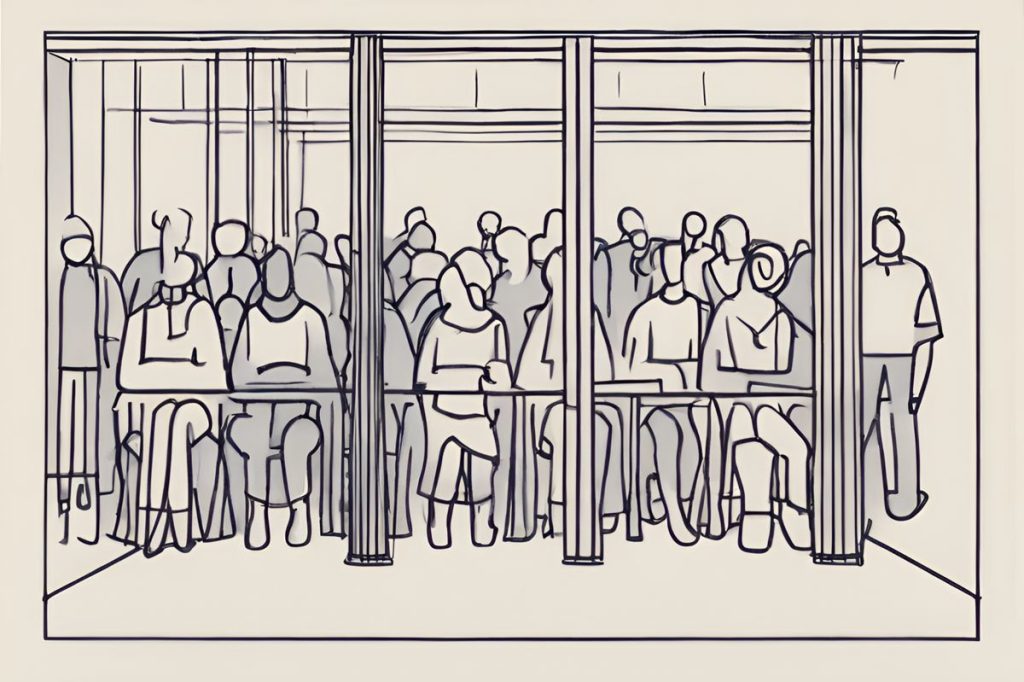Delays in social welfare decisions are causing serious hardships for vulnerable individuals and families who rely on timely support. Ombudswoman Maria Stylianou Lottides highlighted the department’s sluggish response times, emphasizing the urgent need for improved communication and training within the social welfare services.
What are the consequences of delays in social welfare decisions?
Delays in social welfare decisions can exacerbate the hardships of vulnerable individuals and families, who often rely on timely support to maintain a dignified existence. Such prolonged waits undermine trust in the system, affect the department’s perceived reliability, and highlight the urgent need for improved communication and training within the social welfare services.
Prolonged Waits for Social Welfare Decisions
The social welfare department has been steeped in scrutiny due to its protracted response times to public appeals and requests. Reportedly, individuals have found themselves in a three-year limbo, awaiting decisions that drastically affect their lives. This sluggish pace was highlighted in a recent report by the ombudswoman, underscoring a troubling trend of sluggish bureaucracy.
Ombudswoman Maria Stylianou Lottides, herself affected by the silence of the department, shed light on 21 cases before her—some dating back to 2020—that have yet to elicit a response. In her pointed critique, she revealed instances of nearly two-year delays before decisions were reached, putting into question the efficiency and empathy of the social welfare system.
The Plight of the Vulnerable
The heart of the issue lies with the individuals and families who rely on social welfare—often those with limited financial means, in urgent need of support to maintain a dignified existence. It’s imperative that these appeals and requests be addressed within reasonable time frames, particularly in light of the pressing circumstances faced by the applicants. Delays can exacerbate the hardships of these vulnerable groups, making timely responses not just a procedural necessity, but a moral one as well.
The ombudswoman has called for the deputy minister of social welfare to enforce the legal timeframes for examining appeals and issuing decisions. The current mandate requires the department to respond within a 30-day window, with a move to the Supreme Court permissible after three months should an application remain unsatisfied. The ministry is being urged to not only adhere to these timeframes but also to improve communications and ensure helpline staff are thoroughly trained.
Urgent Need for Process Improvement
With pending cases from before 2022 still unresolved, Lottides has emphasized the urgency for immediate action. When delays are inevitable, the department is expected to notify applicants promptly, providing clear explanations for the holdup. This transparency is crucial for maintaining trust between the public and the social welfare department.
The appeal process provides individuals the opportunity to contact the minister directly, with an expected reply within a three-month period. Further extensions can be sought, but these are exceptions, not the rule. With the ombudswoman’s recommendations, the hope is to bridge the communication gap and streamline the process for the betterment of those in need.
A Call for Enhanced Communication and Training
The repercussions of such delays in the social welfare system are far-reaching, affecting not only the immediate recipients but also the broader perception of the department’s reliability and efficiency. To address these concerns, there’s a clear demand for improved interaction with the public, beginning with the helpline staff’s proficiency. The department’s commitment to its duties must reflect the urgency and gravity of the situations many applicants face, ensuring that the social welfare system fulfills its intended role as a support network for the community.
While the ombudswoman’s report casts a spotlight on the inefficiencies within the social welfare department, it also serves as a catalyst for change, inspiring a reexamination of protocols and procedures. The ultimate goal is a more responsive and empathetic social welfare department that upholds the dignity and rights of every individual seeking assistance.
What are the consequences of delays in social welfare decisions?
Delays in social welfare decisions can exacerbate the hardships of vulnerable individuals and families, who often rely on timely support to maintain a dignified existence. Such prolonged waits undermine trust in the system, affect the department’s perceived reliability, and highlight the urgent need for improved communication and training within the social welfare services.
How long are individuals waiting for social welfare decisions?
Reportedly, individuals have found themselves in a three-year limbo, awaiting decisions that drastically affect their lives. Some cases have experienced nearly two-year delays before decisions were reached, showcasing a troubling trend of sluggish bureaucracy within the social welfare department.
What steps are being taken to address the delays in social welfare decisions?
The ombudswoman has called for the deputy minister of social welfare to enforce legal timeframes for examining appeals and issuing decisions. The ministry is being urged to adhere to the mandate requiring responses within a 30-day window, with a move to the Supreme Court permissible after three months if applications remain unsatisfied. Additionally, there is a push to improve communications and ensure helpline staff are thoroughly trained to better assist applicants.
Why is enhanced communication and training crucial in the social welfare system?
Enhanced communication and training are essential in the social welfare system to bridge the gap between the department and the public. Improved interaction with the public, starting with proficient helpline staff, is necessary to address concerns of inefficiency and lack of empathy. By ensuring that the social welfare system is responsive and supportive, it can fulfill its role as a vital support network for the community.

